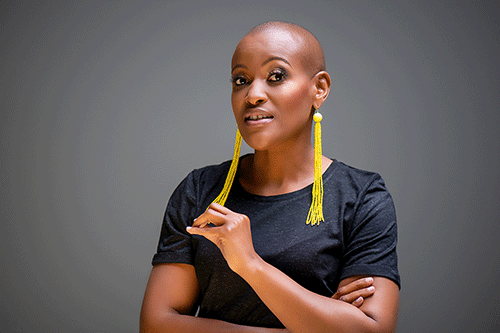Motivational speaker and media strategist Hermien Elago has shared her experience of being diagnosed with bipolar disease, attributing it to a lot of deaths, loss, pain and suffering in the world, which is sometimes triggered by childhood traumas.
Elago told Vital Signs that she has always been a deep feeler, but her range of emotions was mainly deep pain and depression, and then great joy and excitement, with no middle ground, which is a trait of someone with bipolar disorder type two.
The National Institute of Mental Health states that bipolar disorder (formerly called manic-depressive illness or manic depression) is a mental illness which causes unusual
shifts in a person’s mood, energy, activity levels and concentration. These shifts can make it difficult to carry out day-to-day tasks.
“On 19 December 2023, I was so sad that I downed a bottle of wine and two beers, and passed out. I woke up to a family member knocking on the door, who had been sent there by my worried mom and other family members. The family member, who I will always be grateful for, drove me to the Windhoek Central Hospital’s Mental Healthcare Facility,” she confided.
The bubbly Elago was seen by an intern, and interviewed for about an hour. After a series of questions, he believed she was in a hypomanic phase of bipolar, so she took it seriously and started her journey.
“I was numb to it. I honestly did not know how to feel; I was neither here nor there. All I wanted to do was sleep for 100 years. I was exhausted, but also on a hypomanic high, a strange combination. I did not want to accept it, but more than that, I wanted to be free,” she recalled apon hearing the diagnosis.
The radio personality further stated that the most common trigger for her is feeling unheard and unseen, like her being and existence don’t matter. Tthis stems from childhood wounds of feeling abandoned and rejected.
“We are all healing from something, and I have always been someone who heals out loud. Whether it’s about weight loss, corporate bullying, childhood trauma and wounding. I heal out loud so that those suffering in silence can know that there is no shame, and that they are not alone. I alchemise shame for a living”, she indicated.
Since publicly sharing her story, she has had one negative incident where a friend from Germany said that sharing this would negatively impact her image and career, “but I am not on this earth to maintain and protect an imaginary and exhausting perfect image. Perfection does not exist, and what point is it to chase things that do not even exist? What a futile exercise. Foolishness, if you ask me. Most of the feedback has been empowering and encouraging, and has made me feel
heard, seen and most importantly, loved.”
Clinical and pastoral psychologist Dr. Willie van der Merwe said from an age point of view, when people start picking bipolar, it is when they are in their late teens and early adulthood. “That’s the time you would usually see this peak - being very excited and happy, and then it falls right through to being enormously negative and withdrawn.”
Van der Merwe noted that bipolar is a mood disorder with characteristics of
multiple personalities as well.
“We cannot exclude personality disorder; you often get different kinds like independent personality disorder, or what we often refer to as narcissistic. You get showed a very upbeat personality and the version might be just very positive in a certain way, and then you get people just on the negative side,” he stated.
He added that factors which can trigger bipolar vary, as some of them can be due to circumstantial factors, especially the aftermath of Covid-19 and people losing loved ones, or even losing jobs or sources of income.
After being in the industry since 1985, he has noticed that a large number of people continue to experience severe and other forms of depression as a result of losing loved ones.
“When they seem they have no control over their circumstance, they tend to be suicidal, and that has to do with the depression part, where life is not good anymore. So, we need to add therapeutic value to their lives. When you have depression or bipolar, talking to someone who will not share your ordeal might not help much, but it will get them to a place where they are willing to take medication or see someone,” he said.
Van der Merwe indicated that this process cannot happen in isolation, and it will be ideal for families to also be part of their relative’s healing process because they are usually around this person more, so they should be aware of everything he/she is going through.
“People gradually change their behaviour in the family - when the parents notice that their children are changing drastically, it is time for them to take notice of that. Most of the parents feel children are going through phases, and that could be true. But if there is a consistent change in behaviour either becoming risky or depressed - parents should take notice of that,” reiterated Van der Merwe.
He added: “Men are always in denial; women are more likely to talk to a psychologist. I think it has to do with manhood and the notion of “I can sort out my problems, I don’t need a psychologist”. The thinking is that I am not mad, why do I need to see a psychologist?”


